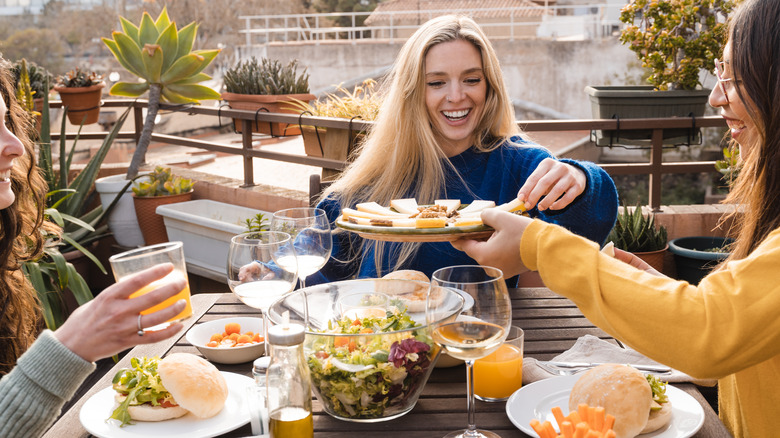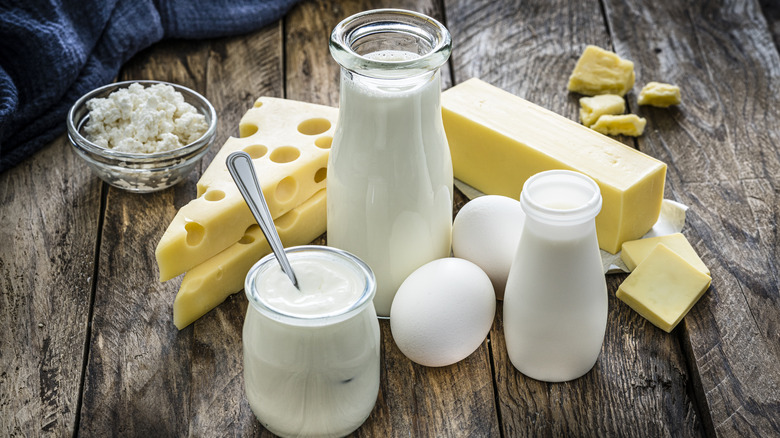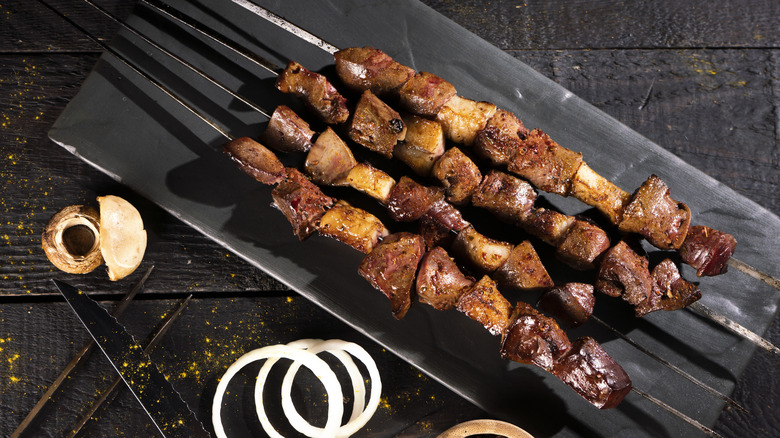Eating Cheese Has An Unexpected Effect On Your Kidney Stone Risk
Some people with kidney stones might never know they have one because they're the size of a grain of sand and pass easily through the urinary system. Others aren't so lucky and can suffer kidney stone symptoms like sharp pain in their lower torso and trouble urinating. Having a kidney stone could also make your pee red or brown.
A kidney stone might develop if you have a lot of concentrated acids and minerals in your urine such as calcium, oxalate, and phosphorus. These minerals are typically in your urine and pass through your body, but they can become concentrated if you don't have enough fluid in your system or if you're doing a lot of sweating. The most common type of kidney stone is a calcium oxalate stone, which forms when calcium binds with oxalate.
Healthy plant foods such as fruits, vegetables, nuts, and seeds are high in oxalate, and dairy such as milk and cheese are great sources of calcium. This might get you to think you should stop eating foods high in calcium and oxalate. However, it's the opposite. Getting more calcium in foods like cheese can reduce your risk of kidney stones.
Limit sodium, increase calcium to prevent kidney stones
It sounds counterintuitive that you should eat more calcium to prevent kidney stones, but when you consider how your digestive system works, it might make a little more sense. When you eat cheese with foods high in oxalate, the calcium and oxalate will bind to one another in your stomach, not in your kidneys.
Besides, oxalates that form in your urine don't necessarily come from the food you eat. Your body creates oxalate as a waste product, and that's what's typically found in your urine, according to Colorado State University. Drinking more water will help dilute these urinary oxalates to prevent kidney stones.
The National Kidney Foundation suggests getting 1,000 to 1,200 milligrams of calcium a day. An ounce of low-sodium cheddar cheese provides almost 200 milligrams of calcium. Why choose low-sodium cheese? Sodium causes you to leak calcium into your urine. It's also best to pair your cheddar cheese with oxalate-rich foods like purple grapes.
Foods that might promote kidney stones
The calcium oxalate kidney stone isn't the only type of kidney stone. You can also develop a uric acid kidney stone if you eat foods high in purine. Where do you find purines? Red meat, shellfish, and organ meats. If you're prone to uric acid kidney stones, limit how much meat you eat in a single sitting. High-protein diets will put too much uric acid in your urine. Keto and low-carb dieters will need to eat more carbs to help flush away uric acid, and high-fat foods including desserts retain uric acid in your kidneys. Alcohol also increases the uric acid in your system.
If you like to take supplements, the Kidney Stone Foundation says a B6 supplement might be fine for people who have a lot of oxalate in their bodies. Also skip the vitamin C supplement, especially if you already eat lots of fruits and vegetables. Too much vitamin C can build up the oxalate in your system.



